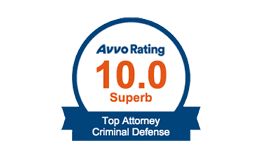Do I have a case? Have a lawyer evaluate your criminal threats accusation.
Arrested for Criminal Threats in Silicon Valley or the Peninsula?
In the heat of the moment, people often make threats they never intend to carry out. Unfortunately, when such threats involve potential criminal activity, that in of itself may be a crime. And in some cases in San Jose or San Mateo courts, making criminal threats is prosecuted as a felony.
If you are arrested and charged with making a criminal threat, you need to take it seriously and consult with a criminal threats attorney. Do not assume that you can simply explain the matter away to a police officer or prosecutor as an innocent misunderstanding. A criminal defense attorney who is experienced with fighting these charges in San Mateo and Santa Clara counties is an invaluable ally in these kind of situations. An attorney can not only advise you as to the law regarding criminal threats in California, but also deal with the prosecution on your behalf to secure a favorable outcome. At the Law Office of James Dunn, the goal for our clients is the complete dismissal of all charges. In that way, we can keep our client’s records clean and avoid jail.
Penal Code Section 422 and Criminal Threats
The criminal threats law is actually one of the more complex statutes in the California Penal Code. Section 422(a) requires the state to establish a number of elements in order to prove a defendant is guilty of making a criminal threat. Here is a brief rundown of the elements in a criminal threats case. Remember that the prosecution must prove these elements. When we meet with you, we’ll review the evidence and devise our defense strategy together.
- First, the defendant “willfully threatens to commit a crime” that will result in “death or great bodily injury to another person.” This would include offenses like murder, rape, or assault, or “terrorist” threats to blow up a building.
- Second, the defendant makes a statement with “specific intent” that it be “taken as a threat.” Put another way, jokingly saying “I am going to kill you” is not a crime since the person you are speaking to clearly does not perceive it as a threat.
- Third, the defendant makes the threatening statement “verbally, in writing, or by a means of electronic device.” This means that a post made to Facebook, Twitter, or sent via email can be construed as a criminal threat if all other elements are present.
- Fourth, the statement taken “on its face and under the circumstances in which it is made, is so unequivocal, immediate, and specific” that it conveys to the recipient “a gravity of purpose and an immediate prospect of execution of the threat.” It is important to note here that the statement does not need to be “absolutely” unequivocal. California courts have held that a conditional threat that is “sufficiently unequivocal” to express intent can support a conviction under Section 422(a).
- Fifth, the statement causes the threatened person to “reasonably” experience “sustained fear for his or her own safety or for his or her immediate family’s safety.” There is no single test for defining what constitutes “sustained” fear. That must be determined according to the facts of a particular case. Even a few minutes of “sustained” fear may be enough.
Does It Matter if You Actually Carry Out the Threat?
A criminal threat is an offense based on the state of fear that it causes in the victim. Whether the defendant actually makes good the threat is irrelevant. Indeed, California judges expressly instruct juries that they can find a defendant guilty “even if there is no intent” to ever carry out the threat.
However, if a defendant takes any subsequent actions that demonstrates intent to carry out a threat, that can lead to additional criminal charges. For example, if you make a criminal threat against someone and then, within 30 days of making the threat, enter that person’s residence with intent to carry the threat out, this is “criminal trespass” under Section 601 of the Penal Code.
How Can a Criminal Threats Attorney Help Me Fight the Charges?
The prosecution needs to prove every element discussed above “beyond a reasonable doubt.” This offers a defendant a number of possible avenues to attack the prosecution’s case. Of course, the facts of every case are unique, but here are some typical defenses that have come up in criminal threat cases we’ve defended:
- The alleged threat was not specific enough. The threat itself does not have to be absolutely precise, i.e., “I will kill you at 10:15 a.m. tomorrow outside your house.” But a vague threat along the lines of “I will get you for this!”, without anything more, is probably too vague to support a conviction.
- The alleged threat did not actually make the accuser afraid, or if it did that fear was “unreasonable” under the circumstances. In other words, the threat itself was so ridiculous that no reasonable person would actually believe it could or would be carried out.
- The alleged threat was not “immediate.” A threat to commit some act in the distant future, or a conditional threat where there is no proverbial “ticking clock”, is not considered immediate for purposes of Section 422.
- The alleged threat is constitutionally protected “free speech.” Statements involving “political hyperbole” and even angry, rambling statements generally do not fall under Section 422.
What Happens If I Am Convicted of Making a Criminal Threat?
Prosecutors in San Mateo and Santa Clara have the discretion to charge a Section 422 violation as either a misdemeanor or a felony. The actual decision is based on the defendant’s prior criminal record and the facts of a given case. A misdemeanor conviction carries a maximum jail term of one year and a $1,000 fine. But a defendant convicted of a felony faces up to 3 years in prison and a $10,000 fine. There may also be additional prison time if the threat involved a “deadly or dangerous weapon.”
A felony conviction can have significant long-term consequences. Section 422 counts as a “strike” for purposes of California’s three strikes law. So if a criminal threat charge leads to your third felony conviction, you will be sentenced to 25 years-to-life in prison. A criminal threat conviction can also affect your ability to hold a professional license in California, as it is considered a crime of “moral turpitude.”
Given the serious penalties for a criminal threat conviction, you can see why it is imperative to speak with a qualified Bay Area criminal defense lawyer. Many times, just having an attorney on your side will help convince prosecutors to drop a weak case. Criminal threats are also often “he said/she said” affairs based largely on alleged verbal statements without written documentation. At the Law Office of James Dunn, we know how to deal with these types of cases, and we will fight to make sure you are not wrongfully convicted.

Half the Cost, Twice the Work
Jim Dunn fixed my previous lawyers blunders, literally cost half as much, didn’t charge me until my case was settled. He got me the best possible outcome after miscommunications with the courts, mostly my previous lawyer was to blame. There were countless little things that Jim did that won’t get named here, but he visited me in Jail on a Sunday evening, he fixed the miswriting of the court scribe, a last minute catch on Jim’s part, my case was first, his pay was second. I like him, he is personable, he called to check on me, I could call him and actually reach him, not go through a secretary and hope to be reached in the same day like my last lawyer. I would definitely hire him again and even form a partnership to become the family lawyer. If you have a run in with with law, you want Jim Dunn on your side, he only tells you the truth, and genuinely wants to help you!
Reviewer: Charlie M. — September 4, 2015 – San Mateo, CA
















